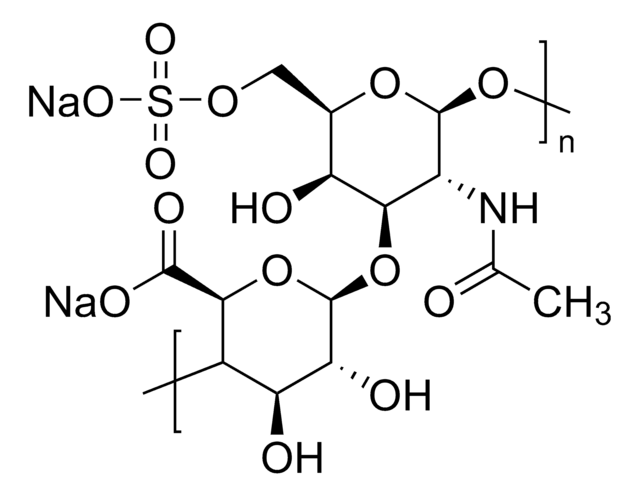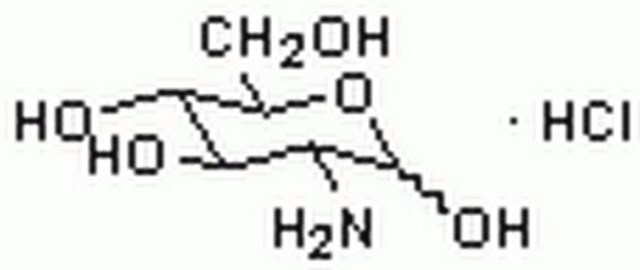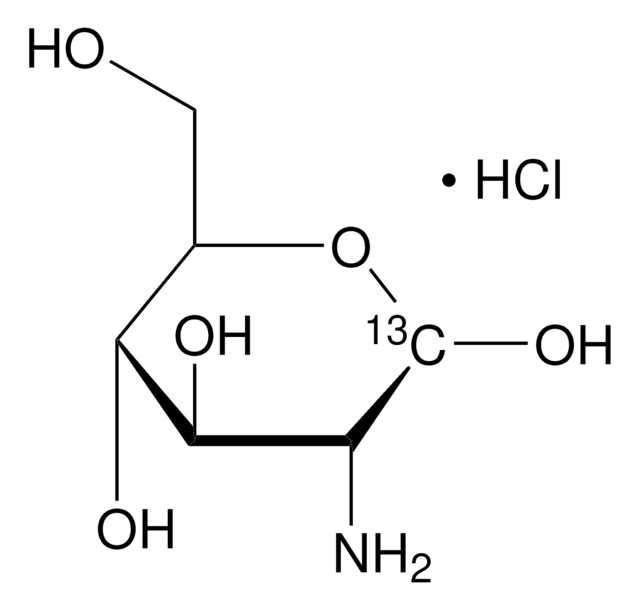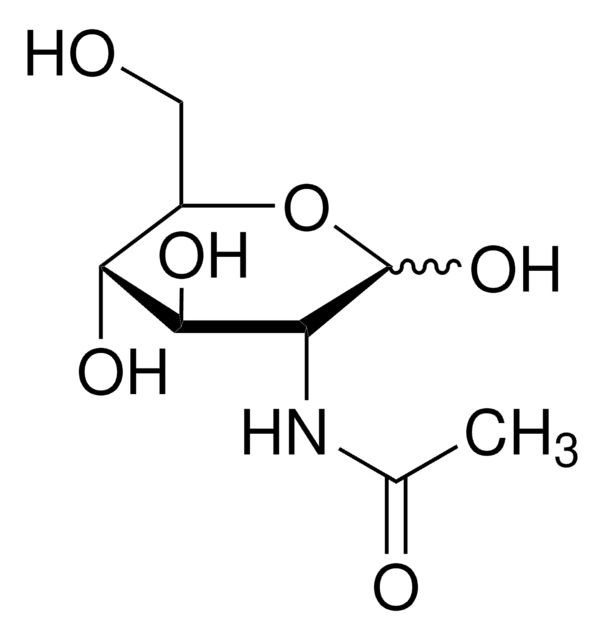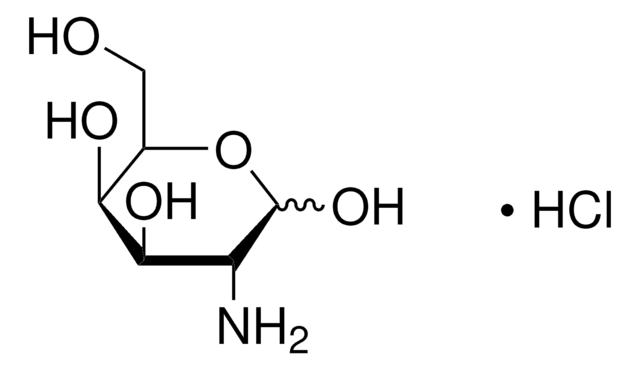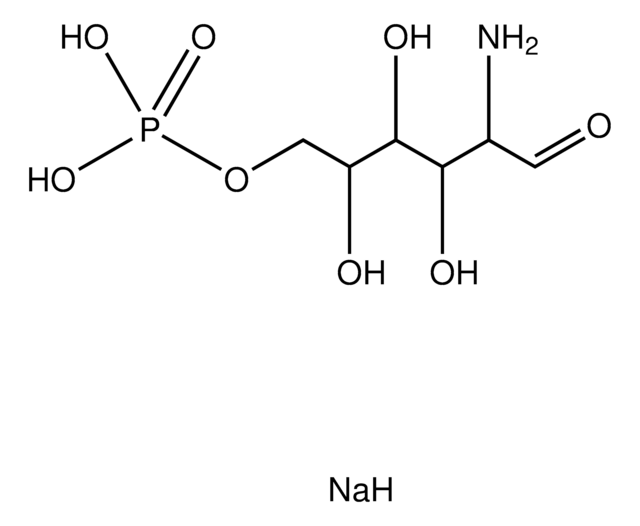1294207
USP
Glucosamine hydrochloride
United States Pharmacopeia (USP) Reference Standard
Synonym(s):
D-(+)-Glucosamine hydrochloride, 2-Amino-2-deoxy-D-glucose hydrochloride, Chitosamine hydrochloride
About This Item
Recommended Products
grade
pharmaceutical primary standard
API family
glucosamine
manufacturer/tradename
USP
mp
190-194 °C (dec.) (lit.)
application(s)
pharmaceutical (small molecule)
format
neat
SMILES string
Cl.N[C@H]1C(O)O[C@H](CO)[C@@H](O)[C@@H]1O
InChI
1S/C6H13NO5.ClH/c7-3-5(10)4(9)2(1-8)12-6(3)11;/h2-6,8-11H,1,7H2;1H/t2-,3-,4-,5-,6?;/m1./s1
InChI key
QKPLRMLTKYXDST-NSEZLWDYSA-N
Looking for similar products? Visit Product Comparison Guide
General description
Application
- Glucosamine and Chondroitin Sulfate Sodium Tablets
- Glucosamine and Methylsulfonylmethane Tablets
- Glucosamine Hydrochloride
- Glucosamine Sulfate Potassium Chloride
- Glucosamine Sulfate Sodium Chloride
- Glucosamine Tablets
- Glucosamine, Chondroitin Sulfate Sodium, and Methylsulfonylmethane Tablets
Biochem/physiol Actions
Analysis Note
Other Notes
related product
Storage Class Code
11 - Combustible Solids
WGK
WGK 3
Flash Point(F)
Not applicable
Flash Point(C)
Not applicable
Choose from one of the most recent versions:
Certificates of Analysis (COA)
It looks like we've run into a problem, but you can still download Certificates of Analysis from our Documents section.
If you need assistance, please contact Customer Support.
Already Own This Product?
Find documentation for the products that you have recently purchased in the Document Library.
Customers Also Viewed
Our team of scientists has experience in all areas of research including Life Science, Material Science, Chemical Synthesis, Chromatography, Analytical and many others.
Contact Technical Service
